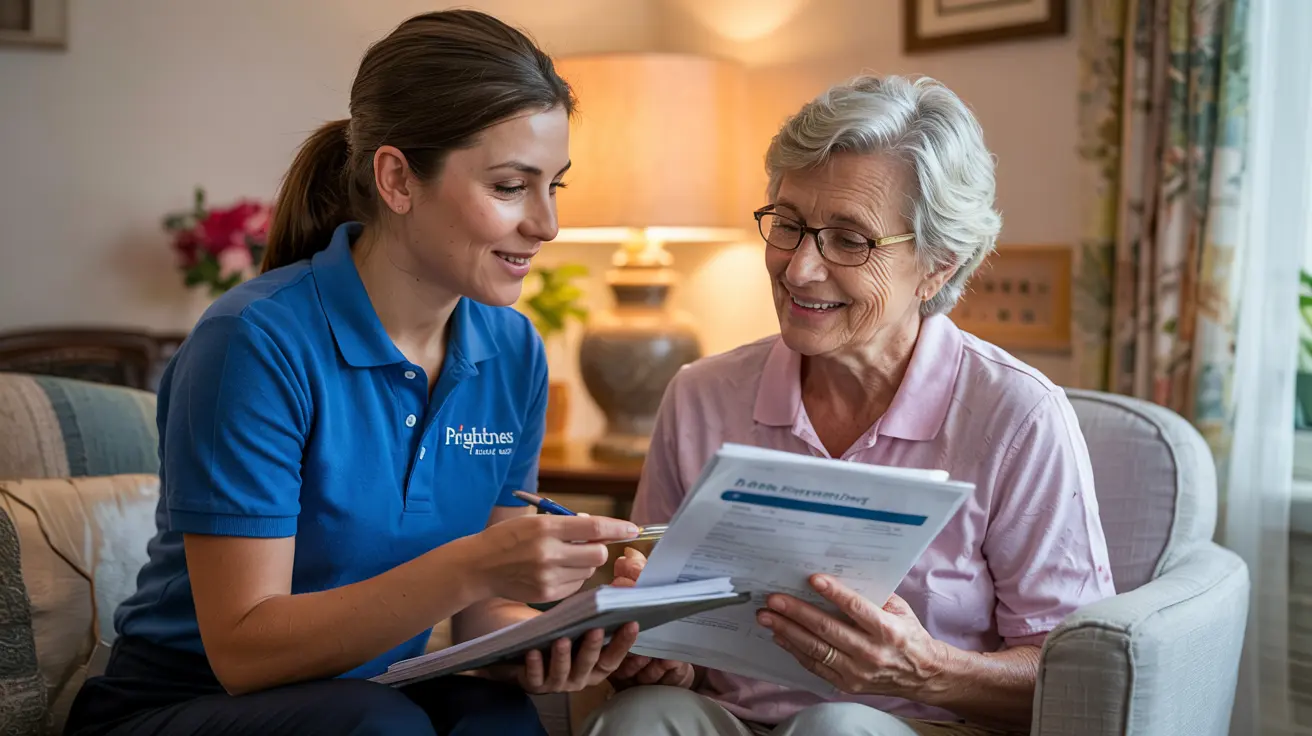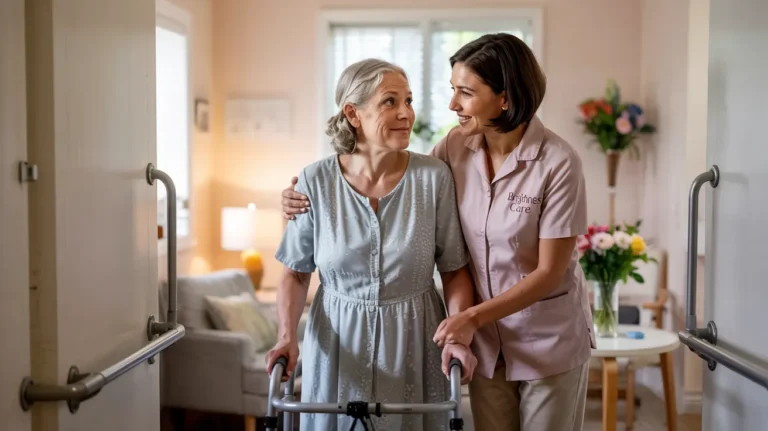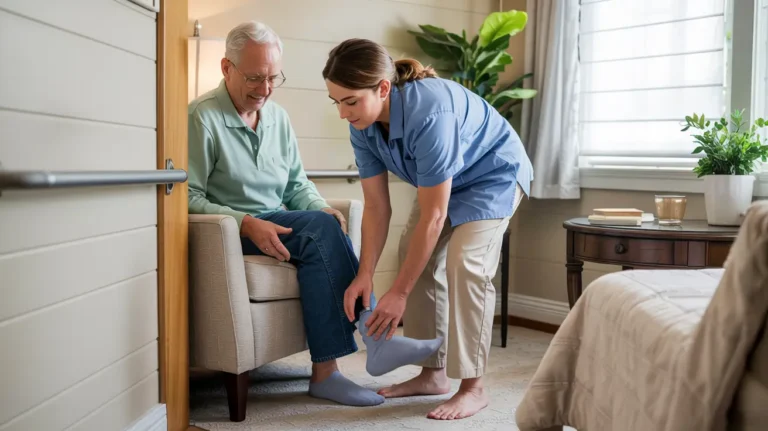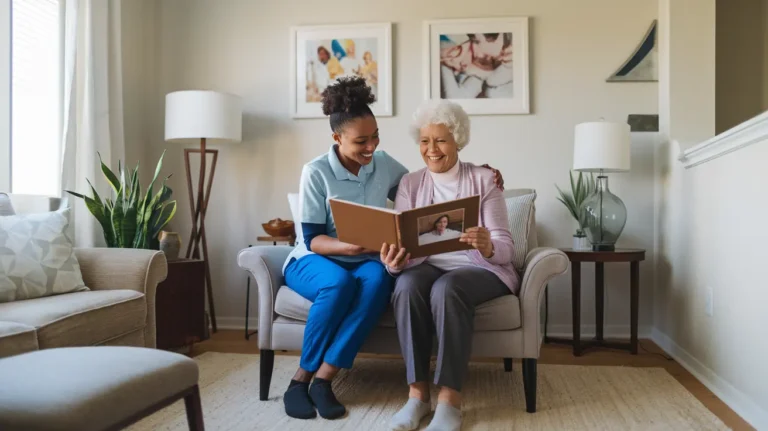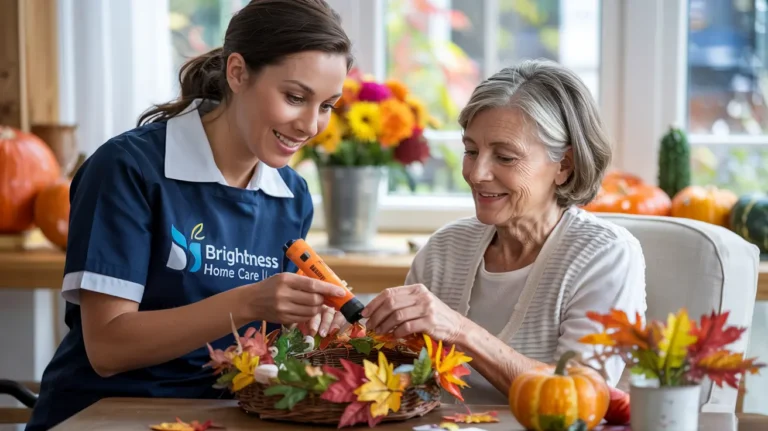Personal Care Assessment in Indianapolis: A Complete Guide to In-Home Evaluations
Did you know that nearly 70% of adults over 65 will need some form of personal care assistance during their lifetime? That’s a pretty startling statistic that caught me off guard when I first started working in home care. I remember thinking, “Wow, that’s most of us!”
Personal care assessments might sound clinical and intimidating, but they’re actually one of the most compassionate things we do in home care. They’re basically comprehensive evaluations that help determine exactly what kind of assistance a person needs to live comfortably and safely at home. And let me tell you, they make all the difference between generic care and truly helpful support that actually improves someone’s quality of life.
Here in Indianapolis, the assessment process has its own unique aspects, and I’ve seen firsthand how a proper evaluation can transform a family’s situation from stressful to manageable. Brightness Home Care LLC, located right here on West 38th Street, has developed a particularly thorough approach to these assessments that I’ve come to respect.
In this guide, I’ll walk you through everything you need to know about personal care assessments in Indianapolis – from what to expect during the evaluation to how to prepare and what happens afterward. Trust me, whether you’re looking into care for yourself or a loved one, this information will save you tons of stress and confusion!
What Is a Personal Care Assessment and Why Is It Important?
A personal care assessment is basically a deep dive into someone’s ability to take care of themselves and their daily needs. I like to think of it as creating a map of a person’s life – showing clearly where they’re doing great and where they could use a helping hand. After conducting hundreds of these assessments over the years, I’ve seen how they form the foundation for any good care plan.
The assessments we do in Indianapolis typically cover physical abilities, cognitive function, emotional health, living environment, and social support systems. It’s comprehensive, y’all! And that’s exactly how it should be – because people aren’t one-dimensional, so their care shouldn’t be either.
I remember one gentleman who insisted he was “doing just fine” but during our assessment, we discovered he hadn’t been able to reach his upper cabinets for months and was living off only foods stored at counter level. That’s exactly why these evaluations matter – they reveal needs that might otherwise go unaddressed.
The benefits of a thorough assessment are huge. For clients, it means getting exactly the help they need – no more, no less. This preserves independence while ensuring safety. For families, it provides peace of mind and clear expectations. I can’t tell you how many times I’ve seen the relief on family members’ faces when they finally understand exactly what kind of help their loved one needs.
In Indiana, there are also specific legal and medical requirements that make these assessments necessary. State regulations require documented assessments before certain types of care can be provided, especially when insurance or Medicaid is involved. These requirements exist to protect vulnerable individuals and ensure they receive appropriate care.
One thing I’ve learned over the years is that skipping or rushing through a proper assessment almost always leads to problems down the road. It’s like trying to build a house without measuring the foundation – you might get away with it for a while, but eventually, things start to fall apart. A proper assessment takes time, but that investment pays off tremendously in the quality of care that follows.
The Step-by-Step Personal Care Assessment Process in Indianapolis
When you first reach out about a personal care assessment in Indianapolis, the process typically begins with a phone conversation. This initial chat helps determine the general situation and allows you to ask questions. I always recommend jotting down concerns ahead of this call – I can’t tell you how many times important details get forgotten in the moment!
After that initial contact, an in-person assessment is scheduled. In my experience, these usually happen at the person’s home because that gives us the most accurate picture of daily living. However, if someone’s in a hospital or rehab facility, we can start there and then follow up with a home visit later.
Before the assessment day arrives, try to gather some key documents. You’ll want to have insurance information, medical history, a current medication list, and any previous care plans or medical evaluations. The first time I conducted an assessment, I was shocked by how many families didn’t have a complete medication list – it’s such a crucial piece of information!
When assessment day arrives, expect to meet with a small team. Typically, this includes a registered nurse and a care coordinator. For more complex situations, a physical or occupational therapist might join. At Brightness Home Care, their team often includes a senior care specialist who focuses specifically on matching personalities and care approaches.
The evaluation itself covers lots of ground. The team will observe and ask questions about mobility, personal hygiene abilities, meal preparation, medication management, home safety, cognitive function, and social engagement. They’re essentially creating a comprehensive picture of daily life and identifying where assistance would be beneficial.
Most assessments take between 60-90 minutes, though some complex situations might require a bit longer. I remember my first assessment took nearly two hours because I wanted to be absolutely certain I understood everything correctly. Now I’m more efficient, but still just as thorough!
After the evaluation, the team compiles their observations into a detailed care plan recommendation. This typically happens within 48 hours, though Brightness Home Care often provides a preliminary summary right on the spot, which families really appreciate. The whole process is designed to be thorough but not overwhelming.
Key Components of a Quality Personal Care Assessment
The assessment of Activities of Daily Living (ADLs) is really the heart of any good personal care evaluation. This includes looking at how someone manages bathing, dressing, toileting, transferring (like getting in and out of bed), continence, and eating. I’ve developed a keen eye for subtle signs of difficulty – like noticing worn carpet areas where someone regularly holds onto furniture for balance.
Good assessors don’t just ask “Can you bathe yourself?” Instead, they’ll ask detailed questions about the process. “How do you get in and out of the tub?” “What parts of bathing are challenging?” “Have you modified your bathing routine recently?” These specific questions reveal so much more than general ones.
The cognitive and emotional health assessment is equally important but requires a gentler approach. Rather than formal memory tests that can feel intimidating, skilled assessors weave cognitive evaluation into natural conversation. They might ask about recent events, routine management, or meal planning – all while watching for signs of confusion, anxiety, or depression.
I once made the mistake of being too clinical during this part of an assessment, and the client completely shut down. Lesson learned! Now I approach these topics conversationally, making mental notes while we chat about daily life or favorite activities.
Medication management is another critical component. The assessment should review all current medications, evaluate the person’s ability to take them correctly, and identify potential risks or interactions. I always check to see if medications are organized, if expired medications are present, and if refill schedules are being maintained.
The home safety evaluation looks at fall risks, fire hazards, accessibility issues, and security concerns. This isn’t about being judgmental about housekeeping – it’s about identifying genuine risks. I remember assessing a home with beautiful throw rugs in every room. They looked lovely but were a major fall hazard for someone using a walker.
Finally, the social needs assessment examines the person’s support network, social engagement, and emotional wellbeing. Isolation is a huge problem for many seniors, and identifying opportunities for meaningful connection is often just as important as addressing physical needs.
Throughout the entire assessment process, dignity and respect must be maintained. No one wants to feel like they’re being judged or failing a test. The best assessments feel like a collaborative conversation aimed at making life better, not a clinical evaluation of someone’s deficiencies.
How Brightness Home Care LLC Conducts Personal Care Assessments
At Brightness Home Care LLC, located at 4911 West 38th Street in Indianapolis, their assessment approach stands out because of their commitment to holistic evaluation. I’ve watched their process evolve over time, and it’s impressive how they consider not just physical needs but also emotional, social, and spiritual aspects of a person’s life.
Their assessment team typically includes a registered nurse with geriatric expertise and a care coordinator who specializes in the Indianapolis community resources. For more complex situations, they might bring in their consulting occupational therapist. This team approach ensures nothing gets missed.
One thing that makes their assessments particularly effective is their focus on building rapport before diving into questions. They understand that opening your home and sharing personal challenges with strangers isn’t easy. I’ve tried to adopt this approach in my own work – spending those first 15 minutes just connecting as people makes everything that follows more comfortable and productive.
Brightness uses a combination of standardized assessment tools and conversational evaluation. They document everything on secure tablets, which allows them to cross-reference information and identify patterns that might not be obvious at first glance. Their assessment software can flag potential concerns that might otherwise be missed.
After the initial assessment, their follow-up procedure is thorough. They provide families with a comprehensive care plan recommendation within 24 hours, followed by a phone call to discuss the findings and answer questions. Then they schedule a 2-week follow-up to ensure the care plan is working effectively or make adjustments if needed.
I’ve heard countless positive comments from Indianapolis families about Brightness’s assessment approach. Many mention how they didn’t realize how comprehensive the evaluation would be, and how the process helped them understand their loved one’s situation much more clearly than before.
One client’s daughter told me, “They noticed things about my mom’s routine that I hadn’t seen, even though I visit every week. Their assessment gave us a roadmap that made decisions so much easier.” That kind of clarity is exactly what a good assessment should provide.
Preparing for Your Personal Care Assessment in Indianapolis
Preparing for an assessment makes the process smoother and more productive. First and foremost, gather all relevant documentation. This includes medical records, lists of current medications, insurance information, and any previous care plans or assessments. Having these ready saves so much time and ensures nothing important gets overlooked.
I always suggest making a list of specific concerns and questions before the assessment. I learned this the hard way years ago when I forgot to mention some important symptoms during my own father’s assessment. Write everything down, even if it seems minor – sometimes the small details are the most revealing!
Consider who should be present during the assessment. Ideally, include close family members who are involved in care decisions, but avoid having too many people, which can be overwhelming. I typically recommend limiting it to 2-3 key family members who know the person’s routine and challenges.
Common concerns before an assessment often include worries about privacy, fears about losing independence, and anxiety about costs. These are all completely normal and should be discussed openly. When I prepare families for assessments, I encourage them to voice these concerns directly to the assessment team.
Be honest about challenges during the assessment. I’ve seen so many people try to “put their best foot forward” only to end up with care recommendations that don’t address their actual needs. The assessment isn’t a test to pass – it’s a tool to get the right kind of help.
Try to maintain normal routines on assessment day. This gives the most accurate picture of daily life. If someone usually struggles with morning activities, scheduling a morning assessment makes sense. The goal is to see typical functioning, not an unusual “best behavior” day.
From assessment to care plan implementation typically takes about 3-7 days in Indianapolis, though urgent situations can be expedited. Brightness Home Care often begins services within 48 hours of the assessment when the need is immediate, which is faster than many agencies in the area.
Finally, understand that the assessment is just the beginning of the process. It creates a baseline that will be updated as needs change. The best care plans are flexible and responsive to evolving situations.
After the Assessment: Next Steps in Your Care Journey
Once your assessment is complete, you’ll receive detailed results and care recommendations. These should clearly explain the type and level of assistance recommended, along with a rationale for each suggestion. Don’t hesitate to ask questions if anything is unclear – you deserve to fully understand the recommendations.
The care plan should identify which services are medically necessary and which are supportive or comfort-oriented. This distinction matters for insurance coverage. In Indianapolis, most insurance plans cover medically necessary services that are properly documented in the assessment.
Speaking of insurance, navigating payment options can be tricky. Medicare, Medicaid, long-term care insurance, and VA benefits all have different requirements and coverage levels. Brightness Home Care has benefits specialists who can help explain these options specifically for Indianapolis residents.
When selecting caregivers based on the assessment, consider both skill match and personality compatibility. The best care relationships combine necessary expertise with personal connection. I’ve seen technically perfect care matches fail because personalities clashed, and I’ve learned not to underestimate the importance of that rapport.
Implementation typically begins with a care plan meeting where the client, family members, and care team review the plan together. This meeting ensures everyone understands and agrees with the approach. It’s your opportunity to ask questions and request modifications if needed.
Once care begins, expect an adjustment period. Even the most carefully designed care plan usually needs fine-tuning once it’s in action. Good agencies like Brightness Home Care build in regular check-ins during the first few weeks to address any concerns quickly.
Remember that reassessments should happen regularly – typically every 3-6 months or whenever there’s a significant change in condition. These reassessments ensure the care plan evolves as needs change. I’ve made the mistake of sticking with an outdated care plan too long, and it never ends well.
Throughout this journey, communication is absolutely key. The best outcomes happen when clients, families, and care teams maintain open and honest dialogue about what’s working and what isn’t. Don’t hesitate to speak up if something in the care plan doesn’t seem right – adjustments are normal and expected.
Conclusion
Personal care assessments are truly the foundation of quality home care in Indianapolis. They transform general support into personalized assistance that makes a real difference in quality of life. I’ve seen countless times how a thorough assessment turns a stressful situation into a manageable one with clear direction.
The process might seem intimidating at first, but with proper preparation and the right provider, it can actually be quite reassuring. Brightness Home Care LLC has developed an assessment process that balances thoroughness with sensitivity, giving Indianapolis families the clarity they need without overwhelming them.
Every person’s situation is unique, and there’s no one-size-fits-all approach to care. That’s exactly why these individualized assessments are so valuable – they ensure the care plan addresses your specific needs and preferences, not some generic template.
Safety considerations are paramount in home care, and proper assessments identify risks before they become problems. I’ve learned through experience that prevention is always easier than dealing with crises after they happen.
If you’re considering home care for yourself or a loved one in Indianapolis, don’t hesitate to reach out to Brightness Home Care LLC at their West 38th Street location. Their assessment team can help you understand exactly what kind of support would be most beneficial and how to access it.
What questions do you have about personal care assessments? Have you gone through this process before? Share your experiences in the comments – your insights might help someone else who’s just beginning this journey!

